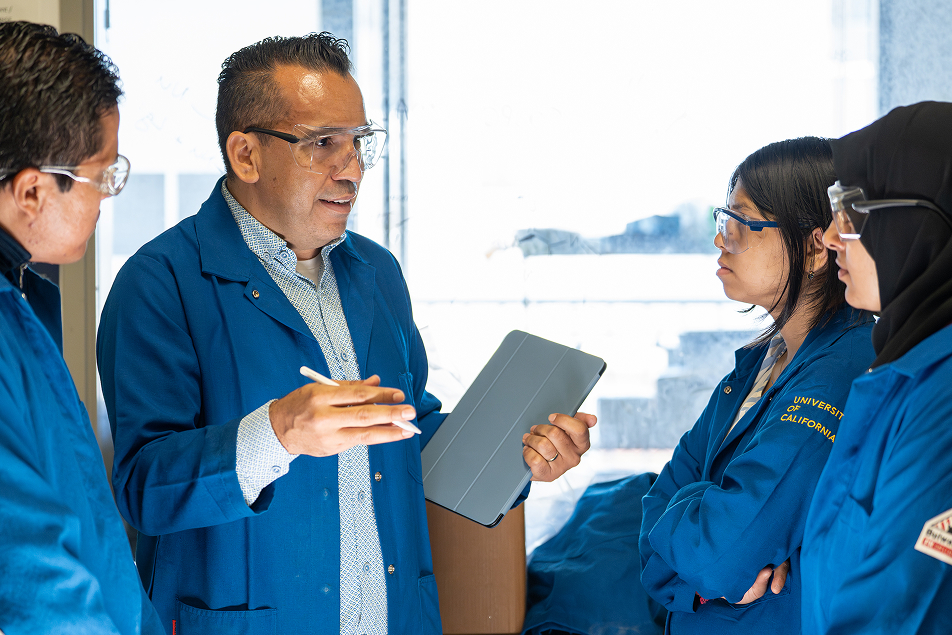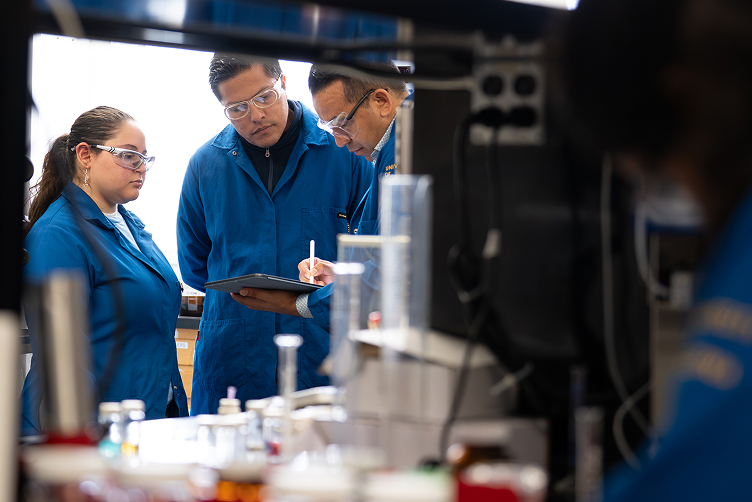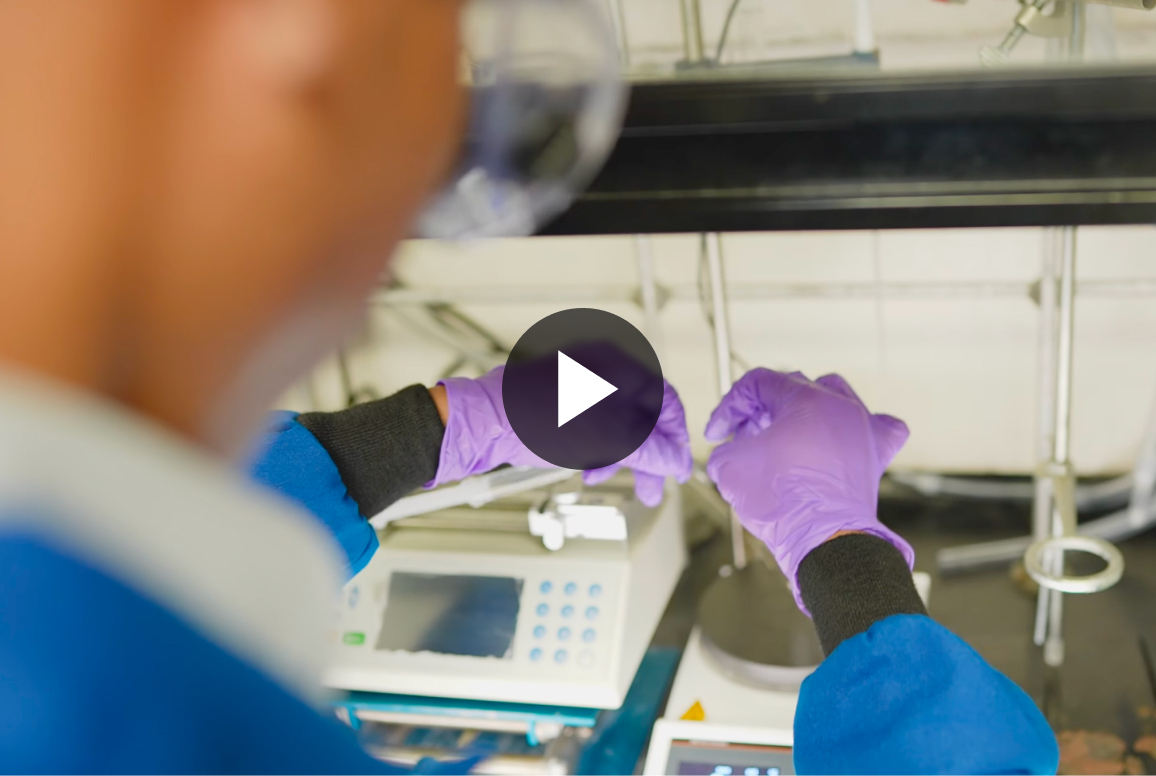Making medicine affordable

In recent years, revolutionary advances in medicine have helped address some of the most pressing challenges to human health. But not everyone can afford these lifesaving treatments. Osvaldo Gutierrez, a UCLA professor of chemistry and biochemistry, has set out to change that.
Gutierrez overcame many obstacles on his path to becoming a leading researcher in organic chemistry. Raised on a rural goat-herding ranch in Mexico, he navigated the challenges of immigrating to the U.S. and worked odd jobs throughout high school and junior college in Sacramento before transferring to UCLA. He became the first member of his family to graduate from high school and college.
“UCLA taught me how to tackle some of the world’s biggest problems, and the culture of inclusivity gave me the confidence to change the world,” Gutierrez said.
Gutierrez found a passion for research and teaching, striving to build an inclusive environment that provides educational opportunities for underrepresented communities. He serves as the inaugural Chicano Studies Research Center’s senior faculty director of Hispanic-Serving Institution STEM Initiatives, where he champions initiatives to support students going through similar experiences.
In his lab, Gutierrez pursues his mission to lower drug costs and make medicine more affordable and accessible to everyone. His drive is partly rooted in personal experience. Following his mother’s death from cancer, he observed that treatments could cost over $100,000.
To tackle this urgent crisis, Gutierrez and his team of researchers have worked to develop new catalysts – which are substances that connect molecules – that glue chemical bonds together. His research builds on palladium-based chemistry, but unlike previous discoveries, his lab focuses on the potential applications of iron in transforming modern medicine.
Iron, a cheap, nontoxic and abundant element, has the potential to become a more sustainable and affordable alternative in the production of lifesaving drugs. This could transform the way medicine is manufactured, dramatically reduce costs and increase availability worldwide. Essential treatments for life-threatening conditions could one day be as inexpensive and accessible as over-the-counter drugs like Advil.
Gutierrez describes the culture of the lab as similar to that of a small company in an academic setting. It receives funding from U.S. agencies, including the National Science Foundation and the National Institutes of Health. Without this critical financial support, Gutierrez would not be able to purchase equipment or pay the students and postdoctoral researchers who work in the lab.
“Fundamental research is at risk when funding is suspended,” Gutierrez said. “Our research is going to have an impact on all of humanity.”




